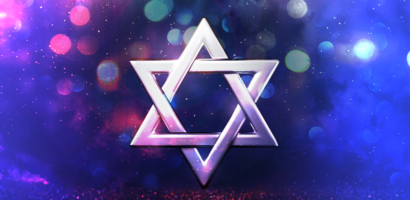Sometimes you can speak a foreign language but still find yourself in a conversation where you wonder: “wait…what was that?” This is especially true when local speakers use slang words or profound expressions. This blog will look at popular slang terms and Hebrew expressions used in modern Israel. Hopefully, this will help you fit into the crowd more comfortably when visiting Israel.
Stay cool with Hebrew slang words
Sof haderech — סוף הדרך
Literally, “end of the road”. You’d think the slang for this means that it’s “over”, “finished”, or “end-of-the-line”, but it doesn’t. It means “great!” or “amazing!”. Possibly, it came about as relating to “a great finisher” or “it couldn’t get better than this”, but that’s just our guess.
Beramot al — ברמות על
This is also slang for “amazing”, but its meaning is a bit clearer. It literally translates to “on high levels”, so you can see the connection. I.e., “My new laptop is on high levels!” Contextually, it would be “on high levels” in terms of both its technological capabilities and how this makes it a fantastic computer to use.

Tachun — טחון
Used to refer to very wealthy people, its literal translation is “minced meat” (ground meat). We have discussed and pondered some possible reasons for the meaning of this term, but we can’t figure it out! If you have any assumptions, please drop us a line in the comments.
Yetzur — יצור
This one’s a bit layered and perhaps slightly offensive if used in specific contexts. It kind of refers to a “creature”, but also ‘huh, what kind of creature?” or even “a mutant”. We’re not sure if this connects to the Teenage Mutant Ninja Turtles or Charles Xavier’s X-Men, but it’s definitely not “mutant” in a positive context. No, this slang term describes a person perceived as weird or socially awkward. Use with caution!
Totach — תותח
The complete opposite of a yetzur is a totach. It literally means “cannon” and refers to an alpha male with big muscles. He’s popular with everybody and a hit with the ladies. Do you want to be labeled as a Totach? You decide!

Achla – אחלה
Really similar to the English term “cool”. It refers to someone who remains calm when trouble comes knocking or is simply aloof. You can also use the word to refer to cool events or situations.
Subscribe to our newsletter
Learn Hebrew slang, take a virtual tour across Israel, discover the best local food and so much more
Express yourself like an Israeli
As you can see, slang is used a lot. However, we have a few Israeli phrases you can also use to get your point across. These phrases are:
Al ta’am ve’al re’ach ein lehitvake’ach — על טעם ועל ריח אין מה להתווכח
“On taste, on smell, there can be no argument.” Yup, if you guessed that this means experiences are subjective, you’re correct!
Adam le’adam ze’ev — אדם לאדם זאב
Literally, “a person to a person, a wolf.” It basically means “each person for themselves.”
Hagamal eino ro’e et dabashto — הגמל אינו רואה את דבשתו
“The camel doesn’t see its own hump.” Why not? Because it lacks psychological insight into its own characteristics. In other words, people are blind to their flaws while pointing out those in others.

Avarnnu et par’o, na’avor gam et ze — עברנו את פרעה, נעבור גם את זה
This is an interesting one. It means: “We overcame Pharoah! We can overcome anything!” This very Jewish expression comes from when the Israelites were slaves in Egypt, according to the Torah. The expression is a (slightly light-hearted) reference to Jewish people’s ability to overcome difficult circumstances.
Learning Hebrew doesn’t have to be your personal Pharoah
If you’d like to improve your Hebrew, why not do it through the most immersive online school? Our teachers are all dedicated native speakers, and the courses involve online synchronous learning with fellow classmates. Together, you’ll overcome the language barrier like Moses overcame Pharoah’s court magicians 😊












 Available on WhatsApp
Available on WhatsApp
Join the conversation (No comments yet)